Let’s face it: running an ecommerce business today isn’t just about having a great product. It’s about how efficiently you run your store, how well you serve your customers, and how smart you are with your time and resources. And that all starts with having the right ecommerce tools in place.
But here’s the problem — with hundreds of options out there, figuring out which tools are actually worth your time (and money) can feel completely overwhelming.
That’s why I created this post.
Whether you’re just launching your online store or looking to scale your operations more effectively, this guide will introduce you to the ecommerce tools I believe are essential in 2025 — across marketing, sales, shipping, customer service, and beyond.
These aren’t just random tools I found online. These are tools I’ve personally used, tested, or recommended to clients — and I’ll break down what each one does, why it matters, and who it’s best suited for.
With all this in mind, let’s look at the different ecommerce tools available for shop owners.
Ecommerce Website Platforms
Before you can even set up your site, you’ll need one of these platforms. It’s possible to set up a small site with WordPress or something similar, but if you carry a wider variety of products, you’ll need a specialty content management system.
This becomes the website for your online business, so choose carefully! Each platform works a little bit differently, even though they all can host your website and handle customer payments. Therefore, you need to think about the features you need to run your ecommerce business efficiently. For instance, the number and type of products you sell can influence your choice. Similarly, you might want a platform that allows for more customization, or that can accommodate a blog.
Remember, whichever platform you choose will display everything on your website. Plus, you’ll be updating it relatively easily. To that end, you want something that you find easy to use and update. Then, you’ll want a great experience for customers. Websites that are difficult for customers to navigate often drive customers away.
1. Shopify

Shopify is a drag-and-drop website builder ecommerce site platform, so you can easily run it even if you don’t know much about web design. You can choose some themes and add your branding. Through native functionality and add-on apps, Shopify handles ordering, shipping, payments, and product descriptions. It also has built-in inventory management features.
Also, you aren’t limited to just selling through your website. Shopify lets you sell on social media with mobile apps, pop-up shops, and even bricks-and-mortar. The last functionality means that you can use Shopify to run the online version of your physical location. With more local businesses than ever selling online, this platform is an option to consider.
By the way, they’ll also host your site, which gives you one less thing to worry about.
Further Reading: Shopify SEO Checklist: 11+ SEO Tasks to Increase Store Sales without Paid Ads
2. WooCommerce


Love WordPress? Then you’ll probably like WooCommerce, too. That’s because WooCommerce is basically WordPress for online selling – and it’s open-source, too. This also means you don’t have to pay for a WooCommerce account, either. On the other hand, you’ll need to buy hosting. Not everything can be free!
What about its native features, though? You get all the basics, such as drag-and-drop, code-free web development. You also get some ecommerce tools for marketing, such as placing Google Ads. Want to list on Amazon? That’s also built-in, so you only need the seller account on Amazon.
Finally, WooCommerce works through a plugin model, just like its blogging counterpart. Add payment methods, email marketing, analytics, and more. You can even add a blog through WordPress integration.
3. Wix


Similarly to WooCommerce, Wix has a little bit of everything. Their attractive website builder allows you to develop your website without code, and they’ll host it for you as well. Market your business, add your payment processing options, shipping/order fulfillment, and even in-person point of sale. You can even link the ecommerce tools with your “general” Wix site, allowing for blogs and other content marketing channels.
Further Reading: 30 Most Important Ecommerce KPIs to Track for Growth: Essential Metrics for Success
4. Squarespace


Squarespace also has both ecommerce and general website types, so it’s a multipurpose website platform. Users talk about how easy it is to make a great-looking website, so it’s popular with creative businesses. In addition, Squarespace has ecommerce tools that work especially well for service businesses, such as online scheduling.
For the more traditional ecommerce businesses, Squarespace has a lot of tools that help you manage the business. For instance, beyond the standard payment portals and inventory keeping, you can add a shipping label function. This interfaces with major shipping providers and lets you choose the best way to ship something to a given recipient based on your current inventory. Then, you can print out the shipping label and get the package on its way. Finally, there are some in-person sales functionalities if appropriate for your business.
Is Your LinkedIn Not Delivering Results?
Just released: my new book to help professionals, entrepreneurs, and business owners maximize LinkedIn for real growth.
With years of LinkedIn expertise, Maximizing LinkedIn for Business Growth offers actionable steps to build your brand, expand your network, and drive results.
Start leveraging LinkedIn like never before—grab your copy now! Click the cover or button below to buy on Amazon.


5. BigCommerce


If you’re a B2B seller, you need to check this one out. That’s because BigCommerce has functionalities that are specially designed to accommodate B2B companies and industries. Additionally, this platform has more room for business growth than many other options: even bigger businesses use it. Overall, the calling card of BigCommerce is that it’s extremely flexible. You can customize your website and its features to support a complex business model – or a simple one.
Further Reading: 13 Ways to Use AI in Ecommerce in 2025 (with Tools Recommendations)
Email marketing is critical for the success of your ecommerce marketing, so once again, choose which technology you use carefully! And don’t forget about the potential for SMS marketing! From transactional emails with tracking information to the email campaign for the holidays, email marketing should be central to your ecommerce marketing operations!
Think you can handle all those emails with a free email address or with simple automation features from your store email address alone? You’d be wrong. Free email boxes work hard to keep people from using personal addresses for email marketing. It’s a defense against spam, which nobody except the spammers like. You might get booted and your account shut down. This would be a disaster for any everyday operations you’re running through that address, such as procurement or customer service.
If you want more information about email marketing and why email software should be among your ecommerce tools, I have another post on that topic.
Now let’s look at some of my favorites in the email marketing tool and marketing automation platform category.
6. Klaviyo


These days, people spend a lot of time on their smartphones, and it goes everywhere with them. However, many businesses don’t have the ecommerce tools to leverage this trend effectively. However, Klaviyo helps bridge the gap with SMS marketing functionality. In other words, they won’t just try to reach potential customers through email and targeted ads. They’ll send promotional text messages, too. Many customers love this approach as long as they don’t get too many from the same sender.
Another advanced feature of Klaviyo is the high level of personalization. While most email tools do segmentation, Klaviyo takes it further by recommending products based on quiz answers. In other words, it works based on customer inputs and not just by passively tracking their behavior. That makes it especially effective for ecommerce businesses with a younger consumer base.
Further Reading: 15 Killer Amazon Seller Tools
7. ActiveCampaign


Active Campaign will give you all the basics and much more. The standout feature of this email marketing app is that it’s much more than that: it’s a whole suite of ecommerce tools. That’s because, in addition to triggered email marketing campaigns, analytics, and segmentation, you also get a CRM. For this reason, you can input customer data just once, and then you have it in a centralized location for multiple processing operations.
If you aren’t clear on what I mean, that’s not surprising. Most beginning businesses and small business owners don’t have a good system to help manage customer relationships yet, because they have few customers and don’t do a lot of marketing. However, the customer relationship management tool is a database of customer information that sales and marketing professionals update continually. In other words, it’s an all-in-one sales and marketing tool.
8. Omnisend


Omnisend is a versatile email and SMS marketing platform tailored for micro, small, and medium-sized ecommerce businesses. Omnisend excels in helping you engage your current and potential customers through email and SMS marketing, catering to the growing trend of mobile device usage.
One of Omnisend’s key features is its user-friendly interface, making it easy for businesses to create email campaigns, design signup forms, and access comprehensive sales and performance reports. Whether you’re a beginner or seasoned marketer, Omnisend’s intuitive tools make email and SMS marketing accessible. Even more, its 24/7 email and live chat support is free for anyone, on any plan, including on the free plan.
9. Mailchimp
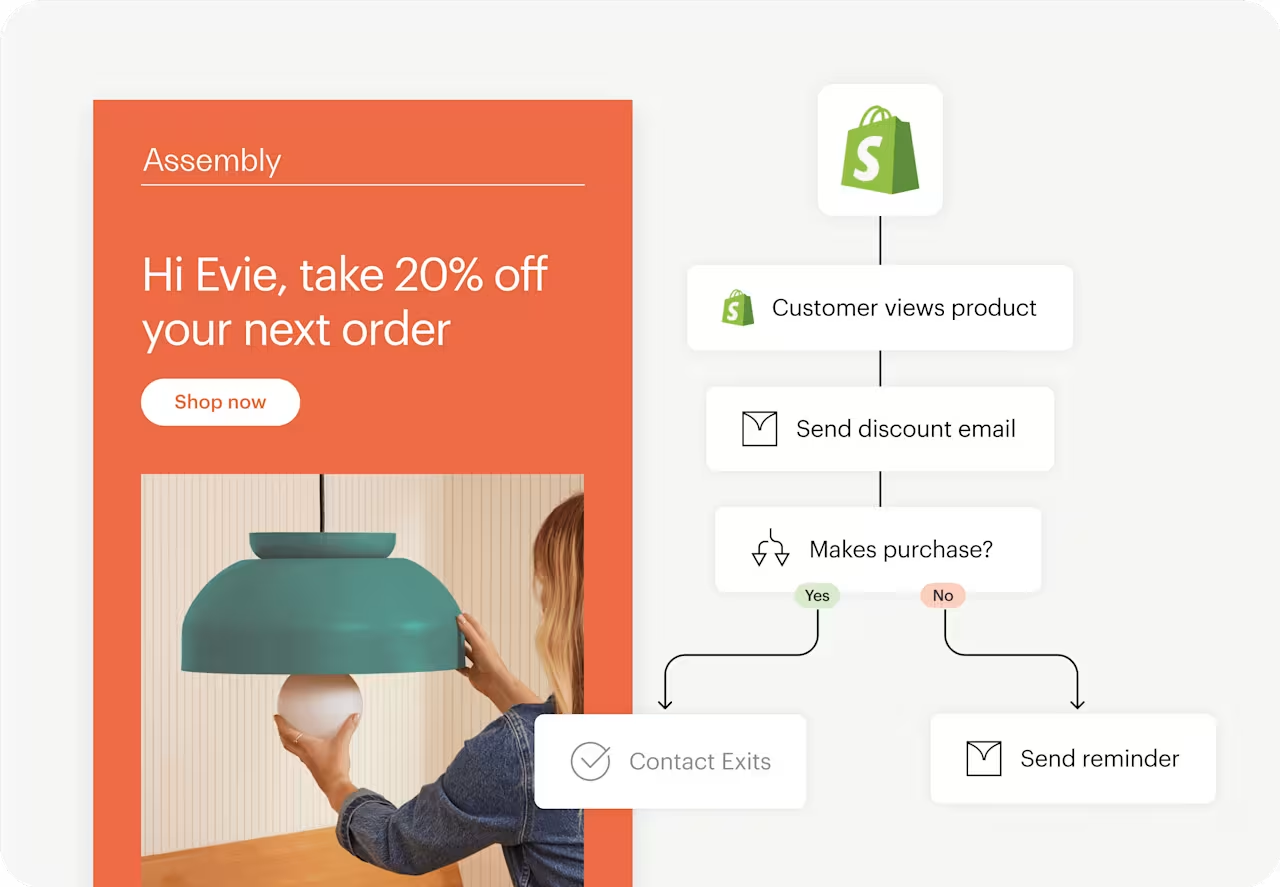

Mailchimp is one of the most well-known email marketing platforms out there — and for good reason. It’s incredibly user-friendly, making it ideal for ecommerce beginners, yet still powerful enough for more advanced marketing automation. You can create beautifully designed emails, set up customer journeys, and segment your audience based on behavior or purchase history.
It also offers solid ecommerce integrations with platforms like Shopify and WooCommerce, making it easy to sync customer data and personalize your campaigns. If you’re just getting started with email marketing or want a reliable platform that can grow with you, Mailchimp is a solid choice.
Customer Service and CRM Tools for Ecommerce
Delivering a great product is only part of the ecommerce equation — how you handle questions, issues, and other customer interactions can make or break your brand. That’s where customer service and CRM tools come in. Whether you’re managing support tickets, live chat, or just need better visibility into customer behavior, these tools help you stay responsive and organized as you scale.
10. Zendesk
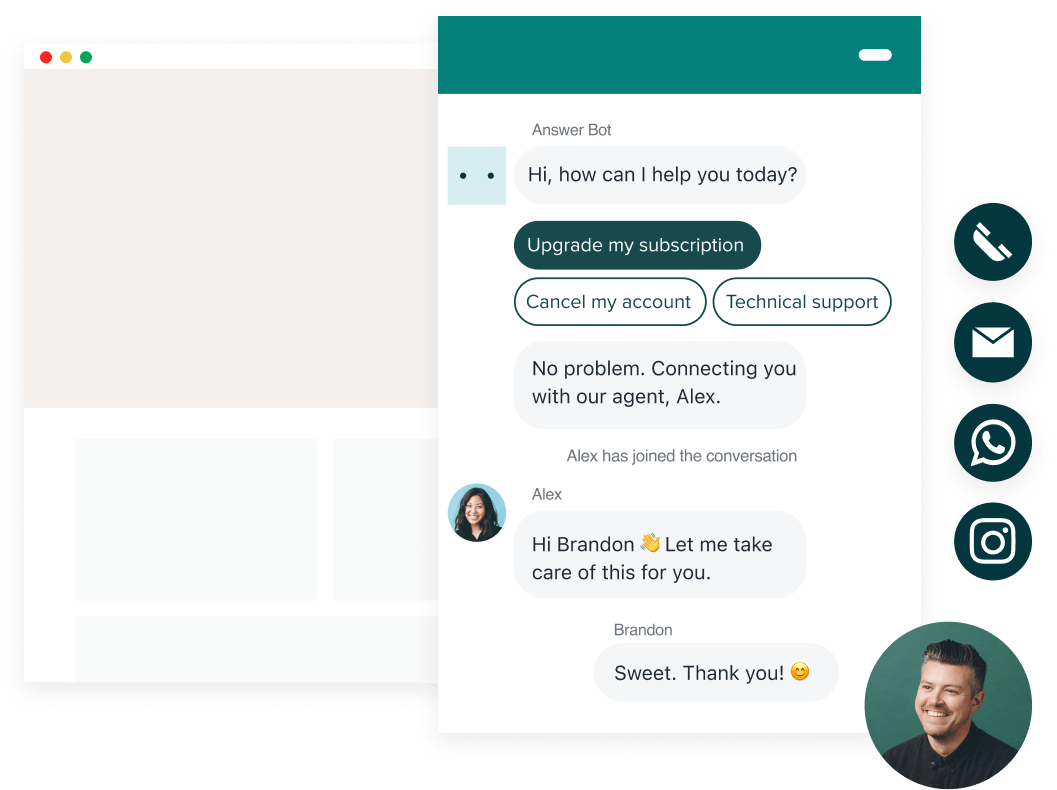

Zendesk is one of the most trusted customer support platforms out there, and for good reason. It helps you manage customer inquiries across email, live chat, social media, and even phone — all from one centralized dashboard. For ecommerce businesses, that means you can deliver fast, consistent service no matter where your customers are reaching out from.
It also integrates with most popular ecommerce platforms like Shopify and WooCommerce, so you can see customer order history right inside your support dashboard — which really speeds things up when you’re handling returns, shipping issues, or product questions. If delivering great customer service is a priority for your store (and let’s be honest, it should be), Zendesk is a powerful tool worth considering.
Shipping and Fulfillment Tools
Once you’ve made a sale, the real work begins — getting that product into your customer’s hands quickly, accurately, and with minimal hassle. Shipping and fulfillment may not be the flashiest part of ecommerce, but it’s one of the most important. The right tools can save you time, reduce errors, and even improve your customer experience with real-time tracking and branded delivery options.
11. ShipStation
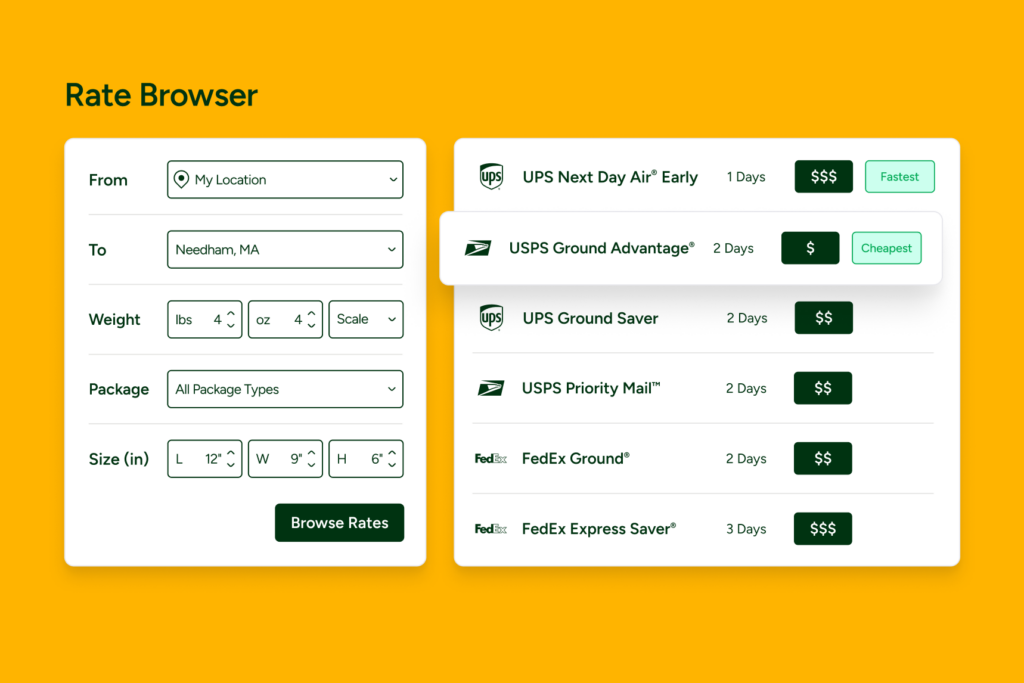

If you’re looking to streamline your shipping operations, ShipStation is one of the best tools out there — especially for ecommerce sellers juggling multiple sales channels. It connects with major platforms like Shopify, WooCommerce, Amazon, and eBay, letting you manage all your orders and shipping labels from one simple dashboard.
ShipStation also gives you access to discounted rates from major carriers like USPS, UPS, and FedEx, and it offers automation rules that can save you serious time — like automatically choosing the cheapest shipping option or applying custom labels based on order contents. If shipping feels like a pain point in your business, ShipStation can make things a lot smoother while helping to improve customer satisfaction.
Conversion Rate Optimization (CRO) + Personalization Tools
Getting traffic to your ecommerce site is just the beginning — the real challenge is turning that traffic into paying customers. That’s where CRO and personalization tools come in. These essential tools help you understand what’s working (and what’s not) on your site so you can make data-driven changes that boost conversions without spending more on ads by optimizing the user experience.
Whether it’s testing a headline, simplifying your checkout flow, or tailoring product recommendations, CRO tools give you the detailed insights and flexibility to continually improve your store’s performance.
12. Hotjar


Do you ever wonder what people look at on your website? Besides tracking what they put in their cart, and what pages they visit, it’s sometimes hard to tell. Fortunately, Hotjar is here to help. This is one of the few ecommerce tools that lets you see exactly where people are looking, even if they don’t click on anything. Hotjar does this with heat maps, which track where customers’ eyes travel on your page. The tool also tracks and analyzes consumer behavior. Then, you can use these actionable insights to boost your sales.
13. Kissmetrics
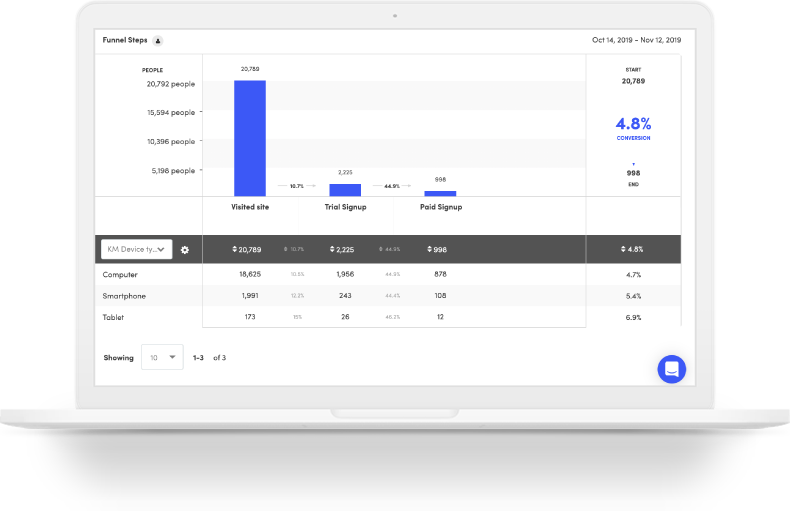

Another tool for behavioral analytics is Kissmetrics. While the literature doesn’t mention heat maps, you do get detailed information about what customers do on your website. Better yet, the information is tied to a specific user, not just a bunch of session IDs (which are anonymous). Best of all, Kissmetrics lets you track user behavior across site versions and your mobile app. In other words, if the same person views your site on a desktop, their phone, a tablet, and the app, you will see the total picture for that individual.
14. Optimizely
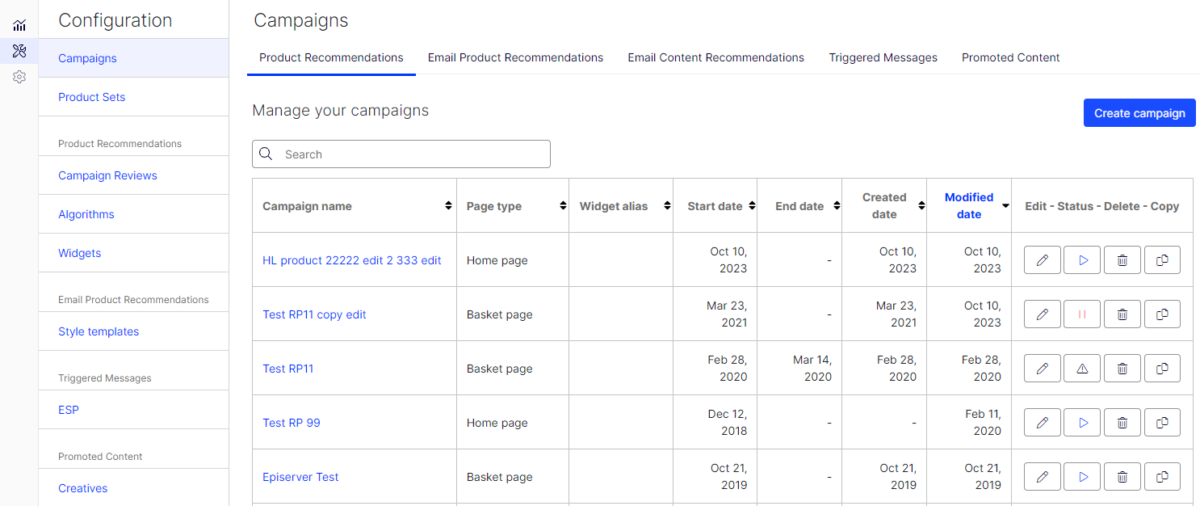

Optimizely is one of the most well-known platforms for A/B testing and personalization — and for good reason. It allows you to test changes to your website, like headlines, layouts, or calls to action, and see which version drives more sales or signups. No more guessing — just real data guiding your decisions.
For ecommerce brands, this kind of experimentation can lead to big improvements in conversion rates and average order value. Optimizely also supports multivariate testing and audience targeting, so you can personalize digital content for different segments of your audience. If you’re serious about optimizing your site for growth, Optimizely is a powerful tool to have in your stack.
Further Reading: 20 Definitive Ecommerce Marketing Strategies to Implement in 2025
Website Analytics Tools
When it comes to running an ecommerce business, knowing your numbers isn’t optional — it’s essential. From where your traffic is coming from to which product pages are converting (or not), having clear, actionable data is what separates smart decision-making from guesswork.
While there are plenty of advanced analytics platforms out there, for most ecommerce businesses, Google Analytics still does the job — especially with the latest version, GA4. It’s free, powerful, and customizable once you understand how to set it up properly for ecommerce tracking and generate its detailed reports.
15. Google Analytics


Anyone with a website that Google indexes can use Google Analytics, and it’s completely free for site owners. All you have to do is add the module or code to your website’s tech stack. If you are on most platforms, this only takes a few clicks, so it’s really easy.
Data-wise, you get detailed analytics on all the basics, such as audience demographics and site visit information. Then, you can use some other ecommerce tools, like your ecommerce CMS and marketing suite of tools, to analyze the data. Best of all, this tool grows with your website because it’s designed for sites of all sizes.
Further Reading: 5 Ways to Leverage Social Media Analytics for Your Business
SEO & Research Tools
Whether it is for your blog to generate more traffic as part of your content marketing or to understand the potential on Amazon better, you need to do your research! Search engine optimization tools help you tailor your site and develop content strategies to do better on search engines like Google, but you need the right keywords first. Also, you’ll need some research tools that can help you pick the best products. For instance, you might find that people want something, but it’s hard to find. That becomes an opportunity to make money.
16. Semrush


Semrush is one of those ecommerce tools that does a bit of everything, and does them well. For one thing, they have everything you need for successful SEO operations, including keyword research and data on how other sites are staying at the top of page 1 on Google Search. You also get detailed competitive analysis from everywhere across the web, so nobody can easily sneak up on you from behind.
Want an all-in-one tool that also helps you with paid advertising functions? Semrush delivers here, too. As your business grows, you can upgrade your plan and use this app for a huge range of functions to leave the competition in a pile of dust.
Further Reading: The Ultimate Guide to SEO for eCommerce Websites
17. Jungle Scout


Jungle Scout is a competitive analysis tool for Amazon sellers. It’s also useful for larger businesses that have items sold on Amazon, but don’t do it themselves (think a computer manufacturer, for instance). Use it to find out what your competition is doing, then hone in on opportunities you wouldn’t have seen otherwise. You can even use this tool to craft product descriptions, track inventory, and more. Depending on your business model, this could be the main tool for an FBA seller.
Further Reading: The 5 Most Powerful Ecommerce Digital Marketing Strategies
As I mentioned above, customer loyalty is very important, especially if you’re starting out. But beyond customer loyalty, engaging affiliate marketers to help sell your products is very effective. In this case, you compensate affiliate marketers for generating sales. You can do this as a percentage of the sale or a per-customer fee. Consider offering a special discount for people who use the referral link, as that sweetens the deal.
18. ReferralCandy


This app offers your customers compensation or an incentive for making referrals. They get a referral link to post on social media, use email, and more. You can choose the kind of incentive. A classic option is “refer a friend, we’ll give them a $10 bucks discount, and you get $10 store credit.” Or any other amount, for that matter. You can also pay a referral fee or commission. One thing I love about ReferralCandy is that, unlike some other ecommerce tools, you only pay them for success.
19. Smile.io


Smile has referral marketing functions. But what makes this tool different is that you can build a loyalty program with it. For instance, you can have people accumulate points that they can use for a discount or free gift. The points can be earned by buying products, making referrals, or even posting on social media. Likewise, you can implement a tiered VIP program, as you see at many of the big retailers.
Who says you have to be a big ecommerce site to get creative?
Wrapping Up: Choose the Right Ecommerce Tools to Grow Smarter
There’s no shortage of ecommerce tools out there — but that’s exactly why choosing the right ones can feel overwhelming. The key is not to chase every shiny new app, but to build a curated tech stack that supports your goals, automates what you can, and helps you focus on what really moves the needle.
From email marketing and shipping to customer service and conversion optimization, the tools we’ve covered here aren’t just popular — they’re purposeful. Whether you’re just getting started or looking to scale more efficiently in 2025, these platforms can help you streamline operations, improve customer experience, and grow smarter.
As always, start with what you actually need today, and grow into the rest. And if you’ve found a tool that’s transformed your ecommerce business, I’d love to hear about it — connect with me on social or contact me on this website.
Actionable advice for your digital / content / influencer / social media marketing.
Join 13,000+ smart professionals who subscribe to my regular updates.